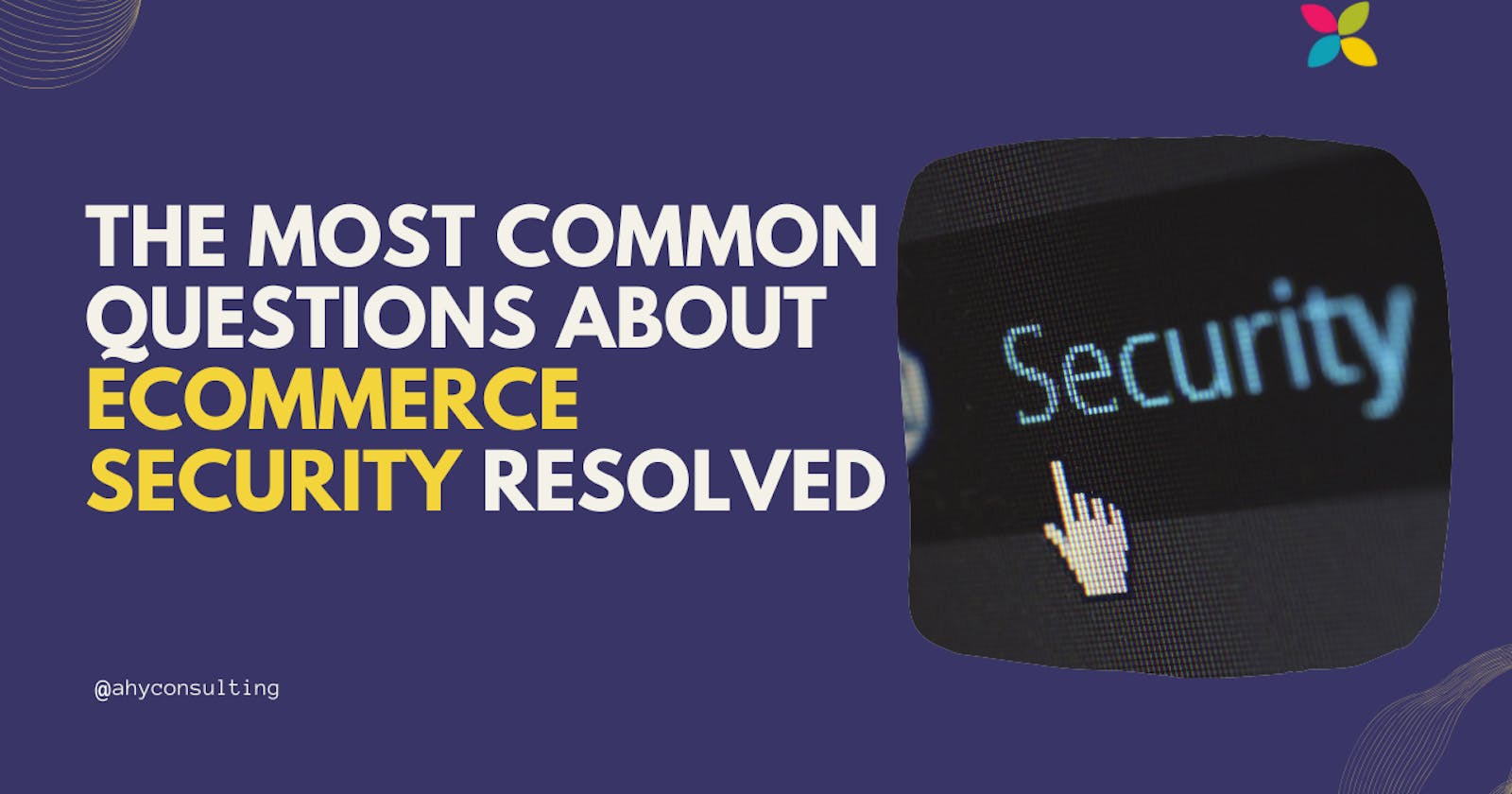The Most Common Questions About eCommerce Security Resolved
Safeguarding Your Online Store: Answers to Key eCommerce Security Queries
In the digital age, eCommerce security is a paramount concern for both businesses and consumers. With the rising number of online transactions, the risks of data breaches, fraud, and cyber attacks have significantly increased. Understanding and addressing common security concerns is crucial for maintaining the integrity of your eCommerce platform and the trust of your customers. Let's tackle some of the most common questions about eCommerce security.
What Are the Most Common Security Threats in eCommerce?
The most prevalent threats include phishing attacks, malware, credit card fraud, and data breaches. Phishing involves tricking individuals into providing sensitive data, while malware can compromise the security of an entire system. Credit card fraud and data breaches involve the unauthorized access and misuse of customer financial information.
How Can I Protect My eCommerce Site from Cyber Attacks?
Implement Strong Security Protocols:
Use secure, updated platforms and software.
Employ HTTPS with SSL (Secure Socket Layer) certificates to encrypt data.
Implement robust firewalls and anti-malware programs.
Regularly Update Your Systems:
- Keep all software, plugins, and platforms up to date to protect against vulnerabilities.
Educate Your Team:
- Train your staff on security best practices and how to recognize phishing or fraudulent activities.
What Should Be Done to Secure Customer Data?
Data Encryption:
- Encrypt customer data both in transit and at rest. This makes the data unreadable to unauthorized users.
Strong Password Policies:
- Encourage customers to create strong, unique passwords. Consider implementing multi-factor authentication for added security.
Limit Data Storage:
- Only store essential customer data and for the minimum necessary period. The less data you store, the less you risk in a breach.
How Can I Ensure Secure Payment Transactions?
Use Reputable Payment Gateways:
- Partner with established and secure payment processors that comply with Payment Card Industry Data Security Standards (PCI DSS).
Tokenization of Payment Data:
- Use tokenization to replace sensitive payment data with unique identification symbols that retain all essential information without compromising security.
How Important Is Compliance with Data Protection Regulations?
It's crucial to comply with data protection regulations like GDPR, CCPA, or other local laws. These regulations are designed to protect consumer data and non-compliance can lead to hefty fines and loss of customer trust.
Should I Conduct Regular Security Audits?
Absolutely. Regular security audits help identify vulnerabilities in your eCommerce platform. They can be conducted internally or by hiring external cybersecurity experts.
What Is the Role of SSL Certificates in eCommerce Security?
SSL certificates are essential for encrypting data transferred between a user’s browser and the server. They are crucial for protecting sensitive data like login credentials and credit card information and are a standard security measure for any reputable eCommerce site.
Conclusion
Effective eCommerce security involves a multi-layered approach, including the use of advanced technology, regular updates, staff training, and adherence to legal compliance. By addressing these common security concerns, eCommerce businesses can not only protect their assets but also build and maintain the trust of their customers.
Concerned about the security of your eCommerce platform? Connect with an eCommerce Security Expert for a comprehensive evaluation and tailored solutions.

